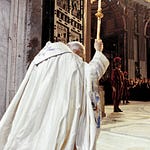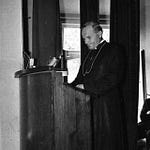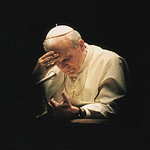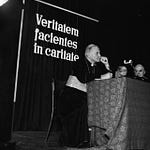The mediation on Jesus´s encounter with the rich young man brought out four essential elements from Scripture concerning moral acts: 1) subordination of man and his activity to God, 2) the relationship between the morality of human acts and eternal life, 3) Christian discipleship, and 4) the gift of the Holy Spirit. Pope Saint John Paul II stresses that Scripture is the living and fruitful source of the Church’s moral doctrine. This is often confused today, as people will say that Jesus doesn’t say anything about abortion, homosexuality, contraception, etc.
The most salient issue in modern moral theology is that of human freedom. Indeed, we moderns greatly value freedom. This is connected with a “heightened sense of the dignity of the human person” (Sec. 31). However, several currents of modern thought have exalted freedom in such a way that the truth about the good has gone lost. Some have argued that the person is, in effect, his freedom (for instance Jean-Paul Sartre). This is to say that everyone has his own truth. My conscience is supreme and cannot be judged by any other law than itself. The issue of freedom is central (sec 34). Concerning this John Paul II writes,
Although each individual has a right to be respected in his own journey toward truth, there exists a prior moral obligation, and a grave one at that, to seek the truth and to adhere to it once it is known. (sec 34)
But freedom depends on truth. In the following sections John Paul II examines the issues raised by the relationship between freedom and truth. These issues, although different in themselves, share a common root, a common flawed anthropology.
Freedom and law,
conscience and truth,
fundamental choice and specific forms of behavior, and
the moral act.
The next four podcasts will address these four issues.












Share this post